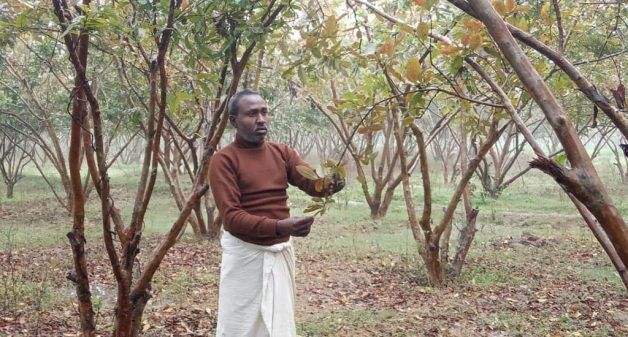
Greening barren land – Bihar’s guava guru
Once a teacher fondly called ‘guruji,’ Satyendar Manjhi now turns barren land into guava orchards – all thanks to the inspirational advice of India’s ‘mountain man’.

Once a teacher fondly called ‘guruji,’ Satyendar Manjhi now turns barren land into guava orchards – all thanks to the inspirational advice of India’s ‘mountain man’.
What was once a barren island in the middle of the mostly dry River Falgu in southern Bihar is now a pleasantly cool and green orchard with the distinct aroma of guava wafting in the air.
This transformation is thanks to the hard work and perseverance of Satyendar Gautam Manjhi — Bihar’s guava guru — who is now on a mission to transform more patches of barren Bihari land.
But another Manjhi – India’s famous ‘mountain man’ – was the original inspiration.
Dashrath Manjhi lost his wife in 1959 when she was sick and they could not get to the hospital in time because of a mountain they had to go around. As a loving tribute to her, the labourer spent 22 years singlehandedly cutting into the mountain with a hammer and chisel to create a road.
Living nearby, one day Satyendar Gautam Manjhi visited the old man.
He still remembers the day when the mountain man suggested he turn the barren river island into a green patch. A tough call in the drought-prone Gaya district.
“When I said the saplings won’t survive here, he put his hand on my shoulder and said I should try with dedication,” recalled Satyendar Manjhi.
There was nothing but sand in the wasteland. Never mind Manjhi had no real farming experience.
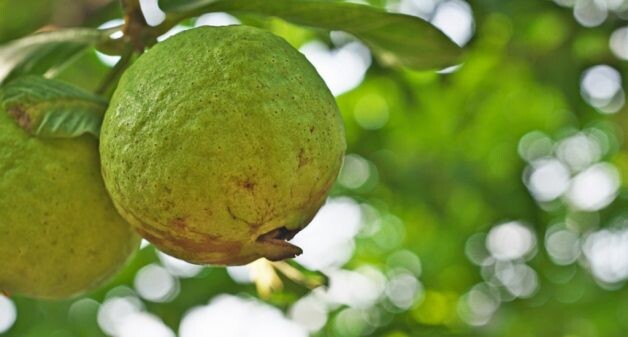
Yet he heeded the mountain man’s words.
In 2005 Manjhi started planting guava since it grows fast, requires little water and maintenance, and bears fruit quickly.
But he found the work challenging, especially during the long, hot summers when water was scarce.
“During the harsh summer, plants started drying and dying due to lack of water,” he recalled. “Irrigation was a challenge with no nearby source. The channel that runs close to the land was dry.”
The villagers taunted him, calling him crazy.
But Manjhi ignored them.
After repeated failed attempts digging the sandy land for water, Manjhi started bringing water from his village Imaliyachak, a kilometre away.
“At daybreak, when most people were asleep, we walked back and forth repeatedly carrying water,” he recalled.
As Manjhi carried water in two big plastic containers on his shoulder, his wife carried water pots on her head for two to three hours – without a break – every day.
“Walking with water pots on my head gave me pain in my neck and head,” his wife Chattiya Devi recalled.
But seeing his dedication, she pushed herself.
Manjhi belongs to the Musahar community, the most marginalised among Dalits. Most of the Musahars and other Dalits in his village are landless farm labourers.
In his teens, Manjhi also worked as a labourer to support his poverty-stricken family before he passed Class 10.
He was a tola sewak (village volunteer) and then became a development assistant appointed by the government to monitor programmes for the Dalit communities.
But after completing his post-graduation, he made a living by teaching poor students of his village and the neighbouring areas, earning the name ‘guruji’.
However, it was growing guavas – now spreading across 40 acres – that brought him financial success.
With the river depositing soil during monsoons in recent years, the land has turned fertile.
He has also drilled a bore.
Now Manjhi is now able to grow wheat, potato, onion and vegetables for his family.
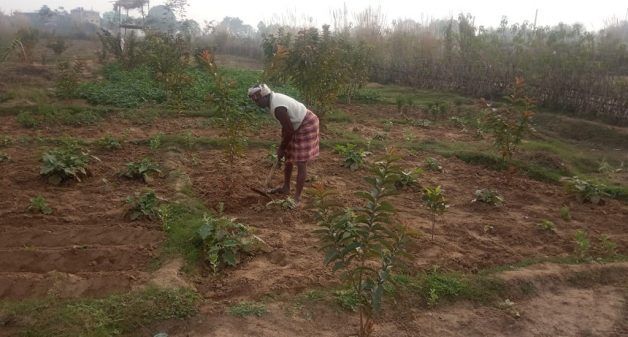
“If there’s a good guava harvest I earn Rs 2.5 to 3 lakh annually. Demand is high due to its good quality, size and aroma,” he said.
Many feel proud of what Manjhi’s determination has created.
“The old saying that ‘fruits of hard work never go in vain’ is true in Satyendar’s case,” said villager Nagendar Yadav.
Though the orchard is a proof of his dedication, Manjhi feels bad that Dashrath Manjhi – whom he fondly called baba (grandfather) – did not live to see the success he inspired.
As a tribute to the mountain man, Manjhi decided to turn his green thumb to Gahlaur Ghati, the barren, rocky hills near Dashrath Manjhi’s village.
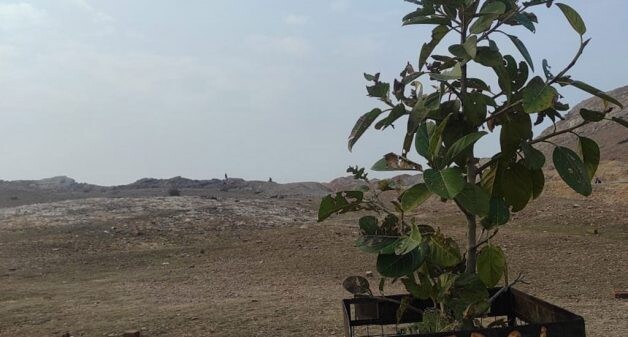
The sandy soil and inadequate water in the area make it a challenge to cultivate. But Manjhi has planted 500 saplings of pipal, neem, banyan and fruit trees, including mango and guava.
“I aim to plant 5,000 saplings this year, so that the place will turn green in a few years and will hopefully bring tourists,” he said.
But that was not all.
Observing the barren land along Falgu near Bakraur village, Manjhi started his greening efforts there too, by planting guava, bamboo, pipal, shisham and neem.
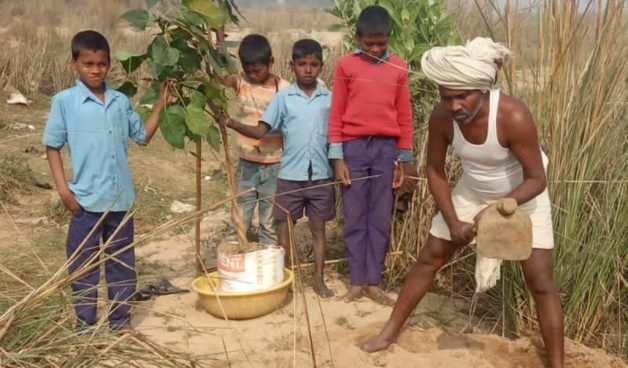
“No one thought of greening this sandy stretch, but Satyender is doing it,” said Bakraur villager Charittar Manjhi.
Satyendar Manjhi’s orchard now has some 11,000 trees – 10,000 of them being guava – bringing him a steady income. But they also bring endless environmental benefits.
Inspired by his work, several villagers have started following his footsteps.
Delighted, Manjhi distributes saplings free of cost to many.
His only condition is that they should nurture and care for the plants – the fruits of his labour.
(ALSO READ: Anaj Bank frees Dalits from fear of hunger in Bihar)
Mohd Imran Khan is a journalist based in Patna.